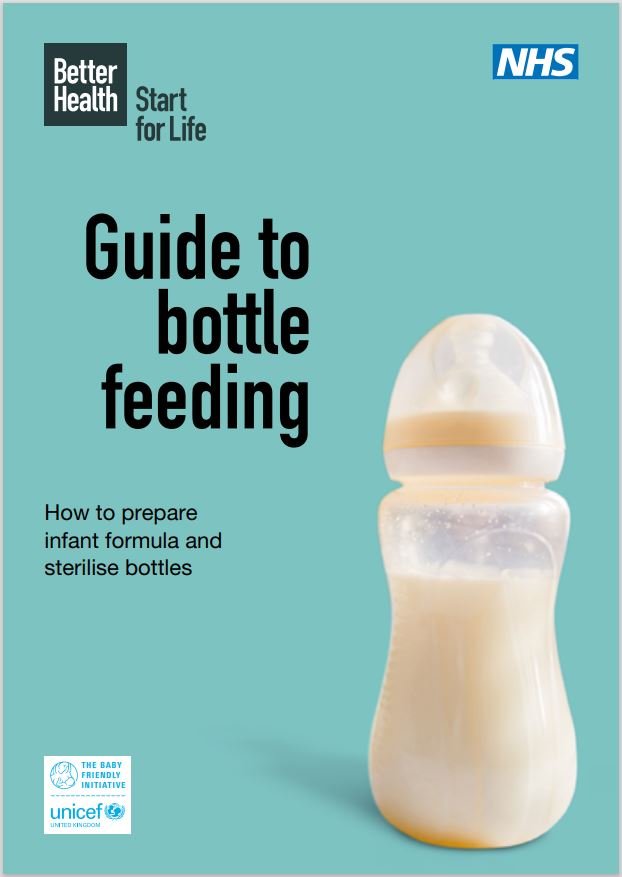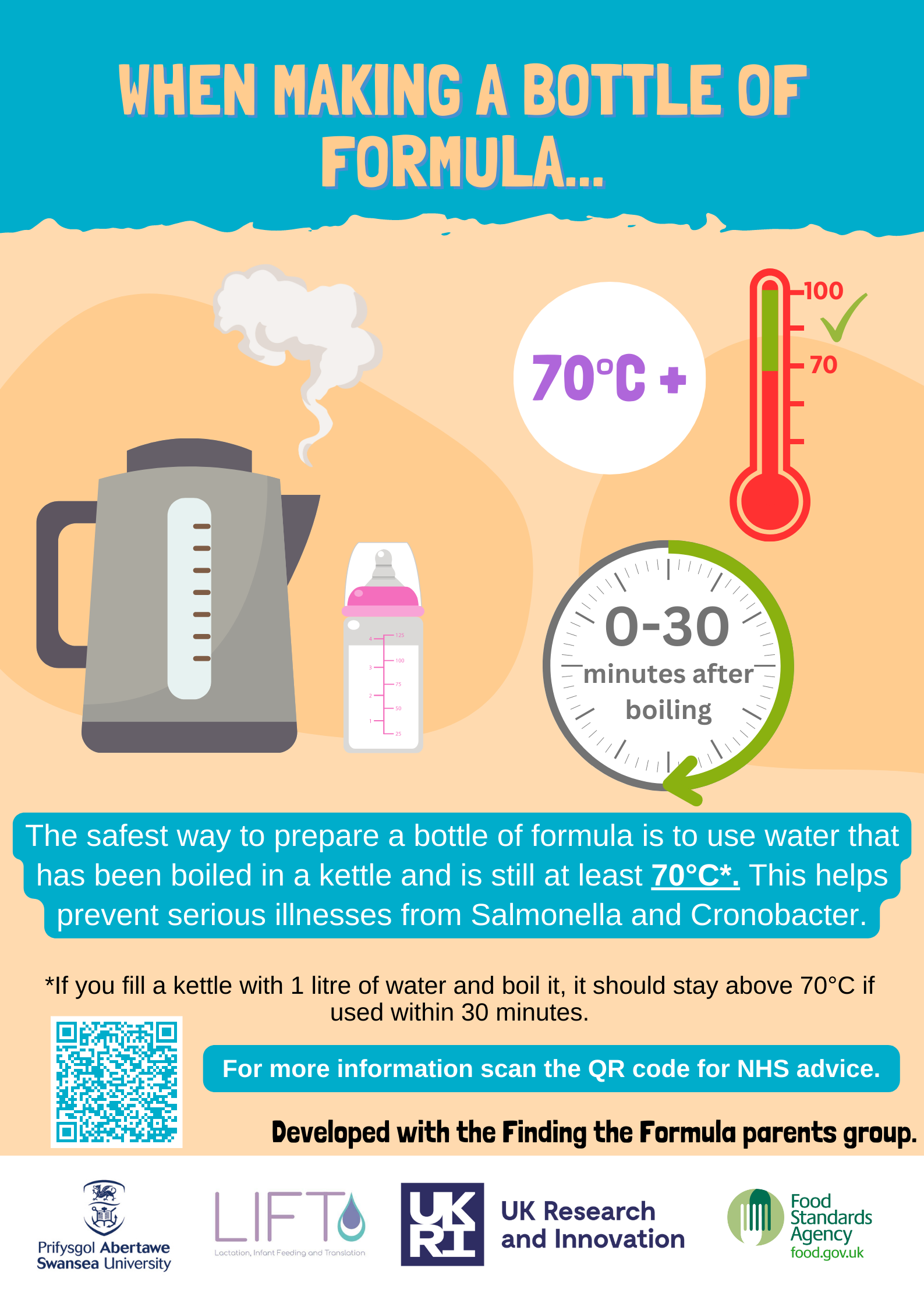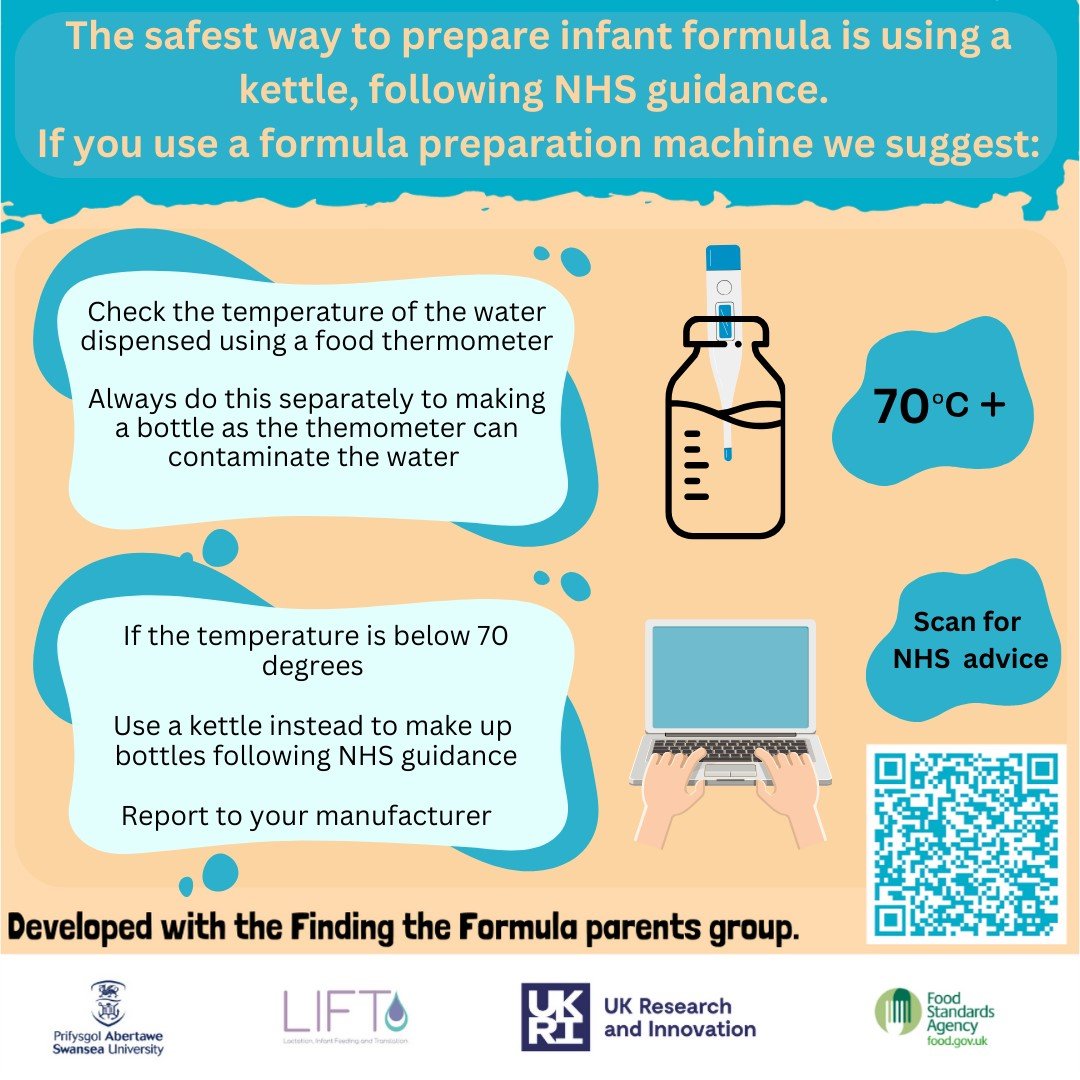Infant milks
Information for parents & carers
The different types of infant formula, and other infant milks, marketed for babies and young children can seem confusing when you see lots of different ones on the supermarket shelf, but the information you need as a parent or carer is really quite simple. The majority of infants who are formula fed or mixed fed should be given a first infant milk (sometimes called first stage or stage 1 milk) throughout the first year.
All infant formula on the UK market must meet compositional regulations, so all products are perfectly ok to feed a baby. More expensive brands still have to meet the same compositional standards as cheaper brands. In this section you will find answers to questions you may have about infant formula (or other infant milks) and some information on making up infant formula safely and responsive bottle feeding. More detailed information can be found in the infant milks section for health workers.
Infant milks:
A simple guide to infant formula, follow-on formula and other infant milks
This simple guide provides a summary of infant milks suitable for use across the first 2 years of life, a series of questions and answers to explain some of the common issues that families may ask about infant milks, and provides details of how to make up milks safely.








